worker-owned cooperative
description: cooperative that is owned and self-managed by its workers
40 results
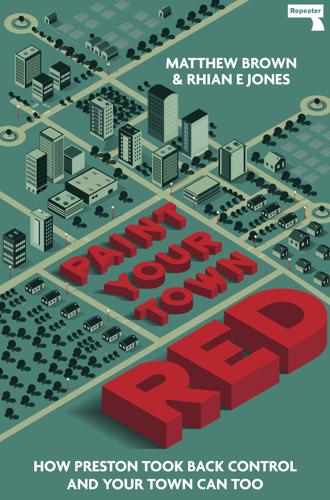
Paint Your Town Red
by
Matthew Brown
Published 14 Jun 2021
In 2019 Preston City Council also created a Cabinet Member for Community Wealth-building, with the dynamic Freddie Bailey, currently in the role, displaying a strong understanding and passion to bring the expansion of worker ownership to scale. CASE STUDY: Mark Porter, Preston Digital Foundation The idea of starting a worker-owned cooperative came about from a chance conversation with the digital worker-owned cooperative Outlandish, based in London. Having taught enterprise at the undergraduate level, I had inadvertently developed a non-hierarchical way of running the module to resolve hierarchical conflicts within peer groups, which happened to map onto that of a cooperative.
…
I’d gone along to Co-operatives UK’s headquarters in Manchester to get some basic training on whether a cooperative model was the best fit for what we were doing. It was then obvious that we needed more local support in order to develop into an operational worker-owned cooperative. An opportunity came up to join PCDN and, through that connection, we got the opportunity to work with like-minded people and get further support in developing a better understanding of worker-owned cooperatives and how that fitted into the Preston Model. Although realising that starting a cooperative was a harder task than a conventional company, something in which I had previous experience earlier in my career, we persevered to create a governance model that worked for our ambitions and to get vital seed projects that allowed us to not only deliver quality digital products, but to road test a cooperative governance model on a small scale before officially launching.
…
The differing availability and accessibility of both municipal and philanthropic funding meant that initiatives in Cleveland were able to tap into various “pots” of local funding, whereas Preston has been able to mobilise its own resources through the city council’s existing networks and structures, not least its ability to command and drive the process of local procurement. The expansion of the Preston Model beyond its “progressive procurement” scheme, to include community banking, the local investment of public pensions funds, and the encouragement of worker-owned cooperatives, has allowed it to adopt a whole-systems approach to building an economic alternative. However, as the Preston Model’s architects themselves acknowledge, the fact that the city council remains the main driving force behind this alternative makes it vulnerable to political change. There is, therefore, also a need for increased buy-in from ordinary Preston inhabitants to consolidate and strengthen this alternative and to put local people themselves in the driving seat.
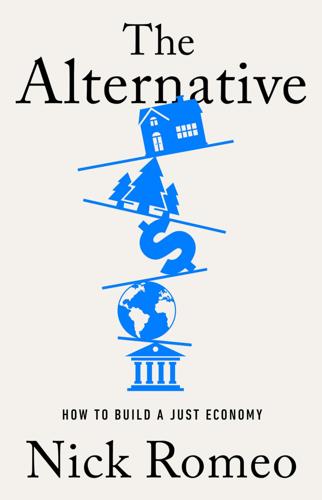
The Alternative: How to Build a Just Economy
by
Nick Romeo
Published 15 Jan 2024
The sudden way Hernández was fired would be almost impossible within Mondragon because worker-owners must vote to dismiss one another, and this can occur only in cases of severe misconduct. Worker-owned cooperatives are often dismissed as an idealistic but inefficient business model, the sort of thing that might work for an upscale grocery store or boutique bakery in a progressive town, but not a serious alternative to the standard corporation. At a 2019 conference, the economist Larry Summers characterized worker-owned cooperatives as sleepy and short-sighted. “When you put workers in charge of firms and you give them substantial control over the firms,” he said, “the one thing you do not get is expansion.
…
In 2016–2017, Rose and her colleagues began conversations with leaders at Evergreen about launching an investment fund that would acquire conventional businesses and convert them into worker-owned cooperatives. Starting a new cooperatively owned business from scratch, as Evergreen did with a commercial laundry, a solar company, and a hydroponic greenhouse, was a relatively slow way to increase worker ownership. Acquiring already successful businesses and converting them into worker-owned cooperatives was quicker and lower risk. “You’re starting with a company that already has a history and track record,” Evergreen CEO John McMicken told me.
…
Classification: LCC HB72 .R635 2023 | DDC 174—dc23/eng/20230222 LC record available at https://lccn.loc.gov/2023008080 ISBNs: 9781541701595 (hardcover), 9781541701618 (ebook), 9780316575874 (international) E3-20231121-JV-NF-ORI CONTENTS Cover Title Page Copyright Dedication Epigraph Introduction: The Novelist and the Economist 1. The Battle for Academia 2. The Hidden Costs of Everything 3. The Meaning of “Living” 4. What If Everyone Was Guaranteed a Good Job? 5. Disrupting the Disruptors 6. The World’s Largest Worker-Owned Cooperative 7. What If Purposes, Not People, Owned Companies and Housing? 8. A Tale of Two Cities 9. Building Equity Conclusion: Inflation and the Inevitable Acknowledgments Discover More About the Author Praise for The Alternative Notes Dedicated to Grace Erny and in memory of Kostas Kalimtzis Explore book giveaways, sneak peeks, deals, and more.
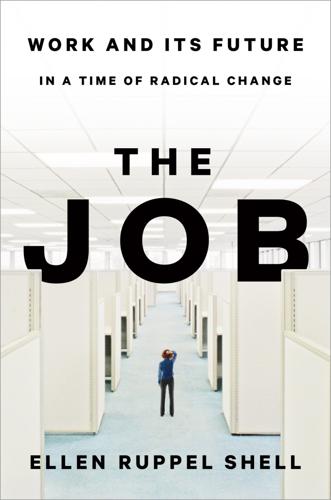
The Job: The Future of Work in the Modern Era
by
Ellen Ruppel Shell
Published 22 Oct 2018
Farmers have since colonial times formed cooperatives to pool resources, consolidate their market power, and insulate themselves from lean years. Robert Owen’s New Harmony, though not itself a rousing success, inspired hundreds of manufacturing worker-owned cooperatives to emerge in response to industrial age struggles over wages and working conditions. Worker-owned cooperatives were also a key element in early labor unions: in the mid- to late 1800s there were more than five hundred worker cooperatives across the country, some of them quite large. The Knights of Labor, with seven hundred thousand members at its peak in 1886, mobilized factory labor into what it called the “co-operative commonwealth,” an alternative economic system built on worker democracy and the abolition of “wage slavery.”
…
As history shows, our national enthusiasm for worker ownership correlates with the ebb and flow of the economy: when times are bad, our interest peaks. Melissa Hoover, president of the US Federation of Worker Cooperatives, believes we live in one of those “bad” times. There are about 350 worker-owned cooperatives nationwide, and interest is growing rapidly. That is partly due to the resounding success of a handful of worker-owned cooperatives, notably the Cooperative Home Care Associates (CHCA). Based in the South Bronx neighborhood it also serves, the cooperative is the largest in the nation, with 2,200 staff members, many of them recent immigrants and single mothers.
…
It was dolled up with skylights, glass-block ribbon windows, bike racks out front, and a trio of murals hand-painted across the polished brick exterior. It looked good. But decor, the surface of things, was never Addison’s priority. What mattered to him was work he could own. And Evergreen was a worker-owned cooperative, built on the utopian vision that Robert Owen imagined so long ago. “They told me that after six months I could buy into the place, have an ownership share,” he said. “That sold me.” Thanks to his previous experience running his own business, Addison got the job and within a year rose from manager to official Evergreen spokesperson and evangelist.
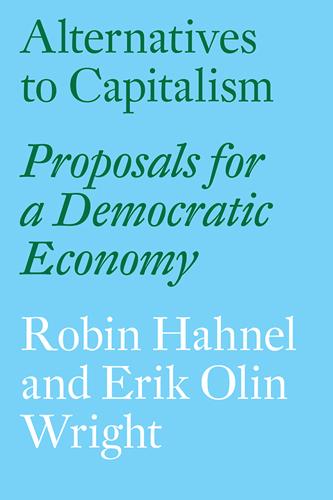
Alternatives to Capitalism
by
Robin Hahnel
and
Erik Olin Wright
An example would be trade associations formed by voluntary cooperation among capitalist firms for the purpose of setting industry standards and in other ways regulating various practices of firms in the sector. This kind of collectively organized self-regulation of sectors constitutes a configuration of capitalist empowerment, not socialist empowerment. Figure 9 A Configuration of capitalist empowerment: Corporate capitalist self-regulation 5. Cooperative Market Economy In a fully worker-owned cooperative firm in a capitalist economy the egalitarian principle of one-worker / one-vote of all members of the business means that the power relations within the firm are based on voluntary cooperation and persuasion, not the relative economic power of different people. Jointly they control through democratic means the economic power represented by the capital in the firm.
…
Under existing conditions, worker cooperatives face serious obstacles to becoming a significant component of market economies: credit markets are skeptical of worker-owned firms; risk-averse workers are reluctant to sink their savings in a venture that has low probability of success; cooperatives face supply chains in which, because of scale, they face higher costs than capitalist corporate rivals; and so on. Symbiotic strategies directed at public policy could address all of these issues. Given the potential for worker-owned cooperatives to help solve problems of unemployment, deteriorating tax bases, and unstable communities, new rules of the game to support cooperatives could gain political traction. Even within the logic of market economies, the positive externalities of worker cooperatives provide a justification for public subsidies and insurance schemes to increase their viability.
…
Sometimes this is useful, but it ignores thorny problems about compatibility, and contains an implicit bias toward an incremental approach to social change. For example, the Chavez government chose to leave the private and state sectors of the Venezuelan economy largely in place, and concentrate instead on building a new sector they call “the social economy” comprised of worker-owned cooperatives, neighborhood clinics, food stores, educational “misiones,” municipal assemblies, and most recently, communal councils. In that context Erik’s approach makes all the sense in the world. In Venezuela socialism depended on their “ability to enlarge and deepen” the new social economy and reduce the capitalist and state sectors of the old economy.
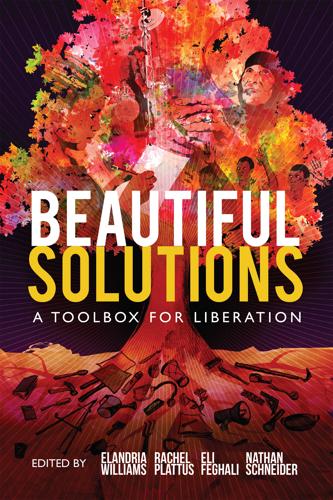
Beautiful Solutions: A Toolbox for Liberation
by
Elandria Williams, Eli Feghali, Rachel Plattus
and
Nathan Schneider
Published 15 Dec 2024
As ever more jobs are absorbed by the gig economy, worker-owned cooperatives represent a viable means of mitigating the isolation and unreliability faced by increasing numbers of workers. Working together instead of working alone, artists and cultural workers can gain more control over the market and the future of work as a whole. WHERE EUROPE WHEN 1980S–PRESENT WHO ARTISTS AND OTHER CONTINGENT WORKERS SCALE INTERNATIONAL LEARN MORE REPORT “All for One: Response of Worker-Owned Cooperatives to Non-standard Employment” by CECOP. (2019) cecop.coop/works/cecop-report-all-for-one-reponse-of-worker-owned-cooperatives-to-non-standard-employment ARTICLE “Platform Cooperativism in Italy and in Europe” by Francesca Martinelli, Samuele Bozzoni, Simone Caroli, Francesca Tamascelli, and Giuseppe Guerini. (2019) ciriec.uliege.be/wp-content/uploads/2020/02/WP2019-27.pdf WEBSITE Smart Coop. smartse.org/en/home STORY CONFLICT KITCHEN The Afghan version of Conflict Kitchen, with a sign saying “Afghan takeout.”
…
“SMART PLACES THE WORKER, BEARER OF ECONOMIC AND SOCIAL VALUE, AT THE CENTER OF ITS MISSION” —SMART CO-OP WEBSITE Starting in the 1980s, artists in various countries across Europe who had precarious working conditions chose to cooperate to obtain professional recognition and more predictable contracts. They formed worker-owned cooperatives that allowed them to gain access to social protections and strengthen their sense of community. One of the longest running artist cooperatives in Italy is Doc Servizi. It was founded in 1990 by musicians seeking to obtain decent work, share job opportunities, create working teams, and organize training to increase their expertise.
…
SOUTHERN JOURNEYS FULFILLS ITS PROMISES OF FAIR WAGES AND MEANINGFUL WORK THROUGH ITS ORGANIZATIONAL STRUCTURE. Southern Journeys fulfills its promises of fair wages and meaningful work for its members through its organizational structure. It is a limited-liability company that functions as a worker-owned cooperative, drawing members from across three states. It is part of a long legacy of African American cooperative networks that provide necessary resources, economic opportunities, and community assets for marginalized communities. The cooperative also sees its work as a mode of community-building, generating shared prosperity and cultural value.
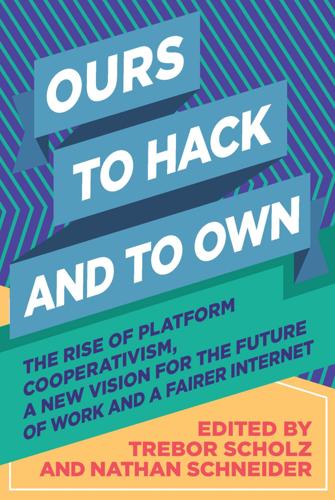
Ours to Hack and to Own: The Rise of Platform Cooperativism, a New Vision for the Future of Work and a Fairer Internet
by
Trebor Scholz
and
Nathan Schneider
Published 14 Aug 2017
Organized labor has largely retained its familiar tactics and worldview despite the reality that the economic structures of employment have been turned on their heads. If unions cannot solve labor’s woes, it may not be simply because organized labor is dying, but rather because organized labor needs to change. That is why members of SEIU-United Healthcare Workers West, in partnership with a tech startup, are collaborating to create a worker-owned cooperative of licensed vocational nurses, or LVNs, who can be dispatched on demand to patients’ homes through a mobile or online device. Despite being skilled workers, LVNs in California—a workforce largely of women and immigrants—have seen their work prospects diminish, partly as a result of registered nurses expanding their own scope of practice.
…
To change these norms, we need to cultivate an ecosystem for platform cooperativism. These projects demonstrate that this effort is already under way. Project Name: Loomio Cooperative Ltd. Completed by: Mary Jo Kaplan Location: Wellington, New Zealand, and Providence, Rhode Island URL: loomio.org Loomio is a worker-owned cooperative that is building a tool for collaborative decision-making used by thousands of cooperatives, community organizations, social movements, and government initiatives across the globe. Loomio enables people to contribute to decisions that affect them, to drive self-determination, better decisions, stronger communities, and engaged workplaces.
…
Loomio’s users are incredibly diverse and so are the ways they use the tool, from day-to-day operational decisions in companies, to collaborative policy development in government, and community engagement by NGOs. In late 2015 we released Loomio 1.0, a mobile-first interface with a focus on interoperability and an automated subscription system designed for growth. Loomio is a robust social enterprise with an ethical business model that was started four years ago. As a worker-owned cooperative, Loomio is owned collectively by the people building it. The current board of directors is made up of four members and one former member. As an open source tool and global social enterprise, we actively engage developers, contractors, activists, investors, customers, advisors, and other stakeholders to work with us to make a better product and company.
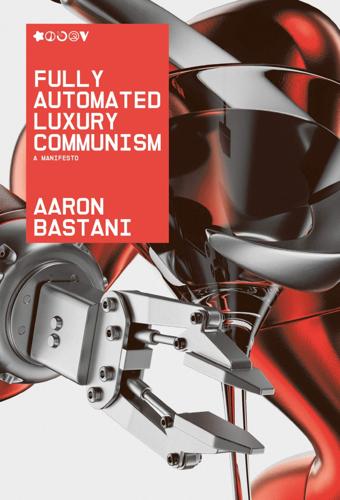
Fully Automated Luxury Communism
by
Aaron Bastani
Published 10 Jun 2019
While that alone was impressive, even it fails to illustrate the extent of change that locally focused procurement achieved, with a multiplier effect taking off in the city as pounds continually recirculated throughout the local economy. That meant that while real wages for workers in Central Lancashire fell after 2008, much as they did across Britain, in Preston – despite austerity – they actually went up. Where other authorities privatised, Preston grew its own businesses, even encouraging worker-owned cooperatives. In late 2016 the city was chosen as the best place to live and work in the north-west, ahead of Manchester and Liverpool. Two years later it took the accolade of being Britain’s most improved city. Replicating the Preston Model is the first step in building an economic alternative that breaks with neoliberalism without needing national state power.
…
Whereas the primary values of the present system are cutting costs and maximising shareholder value, here regional and income inequality would be mitigated and a far broader range of ownership models would emerge. In reality this would mean that the only companies able to bid for specific local contracts would have to meet specific criteria, whether it is being based within a certain distance (perhaps ten kilometres or within a county or state); being a worker-owned cooperative; offering organic products or being powered by renewable energy. Shareholder value would be replaced by these kinds of metrics in calculating what makes the most sense. People’s Businesses, People’s Banks Much of this won’t be possible without access to credit, with difficulty in accessing finance widely accepted as the single biggest hurdle for cooperatives and worker-owned businesses.
…
See also luxury populism Post, Mark, 170–2, 175, 176 post-capitalism information and, 59–60 without communism, 56–9 poverty, 24–5 Preston Model, 208–11, 213 private space industry, 120–1 privatisation, 202–4, 207, 209–10 production, mode of, 195 productivity paradox, 233 productivity revolution, 60–3 progressive procurement, 207 property-owning democracy, 25 prototype politics, 198 PV (photovoltaic) cells, 47, 102–5 radical politics, revival of, 27–8 railway lines, 33–4 realism, capitalist, 17–9 red politics, 188–92 Rees-Mogg, Jacob, 206–7 Reformation, 240, 241 regeneration, 207 Reither, Walter, 70–1 Relativity Space, 123, 124 renewable energy about, 104, 108 financing, 219–20 generating and storing, 218–19 green movement and, 238–9 transitioning to, 218–19 renewables, 106 ‘Reopening the American Frontier: Exploring How the Outer Space Treaty Will Impact American Commerce and Settlement in Space’, 129 Resolution Foundation, 58 resources asteroid mining, 119–20 globalism and, 197 post-scarcity in, 117–37 private space industry, 120–1 space, 119–37 Ricardo, David, 69, 233 rice production, 161–2 Richards, Bob, 124 Rifkin, Jeremy, 79 Rio Earth Summit, 98, 197 robots about, 78, 133 Atlas, 82–3, 132 da Vinci surgery robot, 90 information technology and robotics, 76 ‘KIVA’, 89 rise of, 80–2 Rocket Lab, 121, 122, 123 Romer, Paul, 63–5, 199–200 Roosevelt, Franklin, 194 Rutter, Brad, 80 Sanders, Bernie, 29, 30 Saturn V, 120, 122 Saudi Arabia, 220–1 Schumpeter, Joseph, 36 Scottish National Party, 28 Second Disruption, 11, 32–6, 72–4, 79, 94, 96, 106, 134, 139, 141, 163, 188, 190, 192, 198, 201, 208, 217, 232–3, 236, 238, 241 Selden, Mike, 172, 173 self-regulation, consequences of, 206 ‘Sermon on Indulgences and Grace’ (Luther), 241 Silicon Valley, 196 ‘Six Laws of Technology’ (Kranzberg), 237 Skelton, Noel, 25 Smith, Adam, 69, 233 ‘Social Prosperity for the Future’, 214 socialised capital market, 230–2 socialism, 191 society, electoralism and, 194–6 soil fertility, 118 ‘solar home’, 113–14 solar power/energy about, 101–5, 107 Global South and, 106–11 in Saudi Arabia, 220–1 Solow, Robert, 233 Sondergaard, Peter, 87 space asteroid mining, 133–4 falling costs of, 122–4 mineral wealth in, 134–7 Moon Express, 125–6 near-Earth asteroids (NEAs), 130–1 Outer Space Treaty (1967), 127 as private industry, 120–1 private sector, 132–3 SPACE Act (2015), 2, 9 Space Launch System, 120 Space Shuttle programme, 122 SpaceX, 119–21, 122, 133–4, 156 speculative economy, repressing the, 229–30 Sputnik, 137, 153 state socialism, 213 steam engine, 93, 95, 149, 164, 201, 238 steam power, 33 Summers, Larry, 64–5, 116, 199–200 Supplemental Nutrition Assistance Program, 24 surplus, food, disruptions and, 159–60 sustenance about, 178–9 cultured meat, 170–5 egg whites, 177–9 food, surplus and disruptions, 159–60 meat from vegetables, 175–7 milk, 177–9 planetary limits, 160–4 post-scarcity in, 159–81 synthetic meat, 168–70 wine, 177–81 synthetic meat, 168–70 Syriza, 28, 30 TALEN (transcription activator-like effector-based nucleases), 150 Taylor, Frederick, 60–3, 85 Taylorism, 60–3 technological unemployment, 86–8 technology Marx on, 237 relationship between politics and, 237 Technology and Unemployment report, 53 Terran 1 rocket, 124 Tesla, 84, 85, 106 Thatcher, Margaret, 206–7 Third Disruption, 11, 37–48, 70, 79, 82, 92, 116, 143–4, 148, 156, 171, 185–8, 192–6, 201, 212–4, 217, 221, 226, 232, 234, 236, 238, 241–3 3-D Magnetic Recording technology, 45–6 3-D printing, 122–4, 127 Tithebarn project, 208 transatlantic telegraph cable, 34 transcription activator-like effector-based nucleases (TALEN), 150 transportation, in UK, 215 travel, exponential, 39–40 Trump, Donald, 21, 24, 29, 30 Trussell Trust, 24 Turnspit dog, 72–3 Uber, 84, 85 UBI (Universal Basic Income), 224–6 UBS (Universal Basic Services), 207–8, 213–17, 224, 226, 236 UK ageing in Britain, 141–4 healthcare in, 215–16 transportation in, 215 UKIP, 28 unemployment, 26 unfreedom, 214 unions, in Britain, 211–12 Universal Basic Income (UBI), 224–6 Universal Basic Services (UBS), 207–8, 213–17, 224, 226, 236 University College London, 90 US Department of Agriculture, 178 US Food and Drug Administration, 153 US National Institute of Health, 147 US National Space Council, 129 US Senate Committee on Commerce, Science and Transportation, 129 utopia, from crisis to, 48–9 V2, 137 Valeti, Uma, 173 vegetables, meat from, 175–7 Verne, Jules Around the World in Eighty Days, 33 von Braun, Wernher, 120, 128 voting, 195 wage-labour, 35 Wagner, Erika, 135 Wales, 114 Watson (computer), 80 Watson, James, 144, 149 Watt, James, 33 Watt’s steam engine, 93, 95, 149, 201, 238 The Wealth of Nations (Smith), 69–70 wheat production, 161–2, 165 Whole Foods Market, 88 Wikipedia, 235 wind power/energy, 111–13 windfall tax, 230 wine, cellular agriculture and, 177–81 work, future of, 92–3 worker-owned cooperatives, 209–10 worker-owned economy, 207–8, 211–12, 219 World Bank, 221, 222 Wycliffe, John, 239–41 Xplorer, 132 Yang (factory worker), 1–2 ZFNs (zinc finger nucleases), 150 zinc, 118 zinc finger nucleases (ZFNs), 150 Žižek, Slavoj, 17n
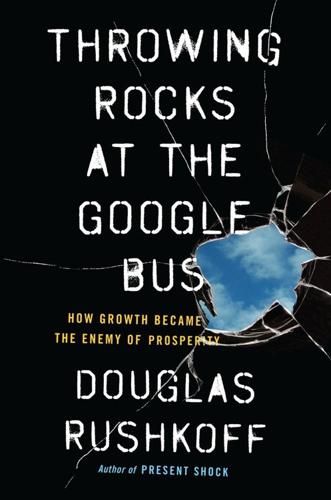
Throwing Rocks at the Google Bus: How Growth Became the Enemy of Prosperity
by
Douglas Rushkoff
Published 1 Mar 2016
It’s essentially a bounded network of worker-owned businesses that source from one another instead of seeking the lowest bidder or attempting to expand into an additional horizontal. Valuing sustainability over growth, the businesses remain small but also agile enough to retool if market conditions change and networked enough to get support if they need to pivot. Worker-owned cooperatives can even scale. The oft-cited Mondragon Corporation began in the Basque region of Spain in the 1950s when a Jesuit priest and seven of his students formed a worker-owned paraffin heater company. Over the next decades, the cooperative launched more worker-owned businesses, organized through elected councils that coordinate international strategy.
…
United Steel Workers is involved in discussions about launching worker-owned companies as part of Mondragon, which currently employs over a hundred thousand people.87 Its big-box retailer, Eroski, has managed to keep even Walmart at bay in Spain.88 But Mondragon’s enormity, as well as the scale and scope of its operations, makes it more vulnerable to the problems of traditional corporate conglomerates. Some of its larger companies have made missteps into ethically suspect offshoring, and a few push for growth as ardently and self-destructively as any traditional multinational corporation.89 But Mondragon’s success does prove that worker-owned cooperatives aren’t just for making organic jams; they can scale vertically and horizontally and compete with any shareholder-owned corporation on the block—without sacrificing the value of land or labor to that of capital. Digital technologies can distribute these cooperative principles even further, giving independent workers and creative freelancers the ability to organize into co-owned networks instead of surrendering their autonomy to platform monopolies.
…
Where digital industrialism pushes corporations even further away from value creation, a more distributed approach to digital business embraces and enriches broader constituencies of stakeholders. Where an industrial approach to networking yields the platform monopolies of Uber and Amazon, a distributed one yields worker-owned cooperatives at a level of complexity and security unimaginable before digital technology. Where the digital industrialist’s financial strategy is to extract money through increasingly abstracted derivatives, a more distributist vision would promote the circulation of money through low-friction, peer-driven currencies.
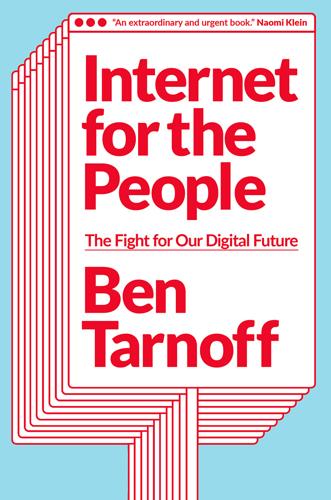
Internet for the People: The Fight for Our Digital Future
by
Ben Tarnoff
Published 13 Jun 2022
This is the idea behind what thinkers Joe Guinan and Martin O’Neill call “community wealth building”: a strategy for increasing “democratic collective ownership of the local economy” by tapping the procurement budgets of public and quasi-public “anchor institutions.” As a model, they point to the Evergreen Cooperatives in Cleveland, a cluster of worker-owned cooperatives including a laundry, a greenhouse, and a solar energy company that count two major medical centers, a university, and the city government among their clients. Another source of inspiration is Preston, a city in the United Kingdom that has undertaken a similar, if more extensive, set of experiments.
…
In 1981, the left wing of the Labour Party won control of the Greater London Council (GLC), a municipal administrative body, and embarked on an ambitious economic program. At the time, London had high unemployment, in large part due to deindustrialization. The GLC responded by investing public money in unionized firms, as well as encouraging the creation of worker-owned cooperatives. It also established five “Technology Networks” in different locations across the city. These were prototyping workshops, similar to “makerspaces” or “hackerspaces” today. People could walk in, get access to machine tools, receive training and technical assistance, and build things. The designs for the things they built went into a shared “product bank” that other people could draw from, and which were licensed for a fee to for-profit firms to help finance the Networks.
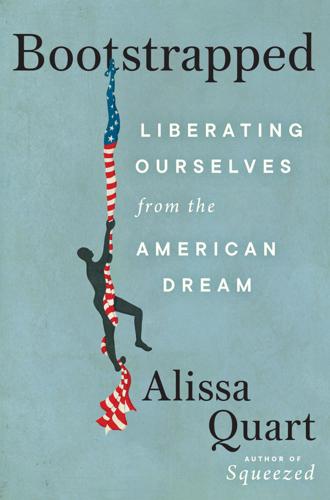
Bootstrapped: Liberating Ourselves From the American Dream
by
Alissa Quart
Published 14 Mar 2023
The renewed interest in co-ops marked a return to what Emily Kawano, the codirector of the co-op development organization Wellspring Cooperative Corporation, called making a “livelihood” rather than just earning a paycheck. It was also a collective enterprise that was starting to find more political support. In 2020 and 2021, California Representative Ro Khanna publicly championed worker-owned cooperatives on a federal level. (He was a longtime supporter of the practice and had often hosted roundtable discussions on them.) At a town hall in February 2020, he said he was developing legislation supporting worker co-ops: “Worker cooperatives can be part of the solution in building the working class and the middle class in this country.”
…
Thirty or so years later, the New Deal era also encouraged a shared work ethos, and a wave of collective businesses were pleasingly named “self-help cooperatives,” a truer version of the word self-help than what we have today, as there are no Gwyneth Paltrow–self-care-jade eggs in that version of the word. The Self-Help Cooperative Movement started in 1931 when unemployed people in the Compton neighborhood of Los Angeles contacted farmers outside of the city to set up a barter system: labor for food. (The co-ops back then made more than just food, though—the worker-owned Cooperative Industries of Washington, DC, for instance, ran a laundry service, shoe repair, and cannery.) The movement that offered an estimated three hundred thousand people in California alone a livelihood didn’t tend to make it into history books, yet the worker and consumer cooperatives became a huge movement with 1.3 million people involved.
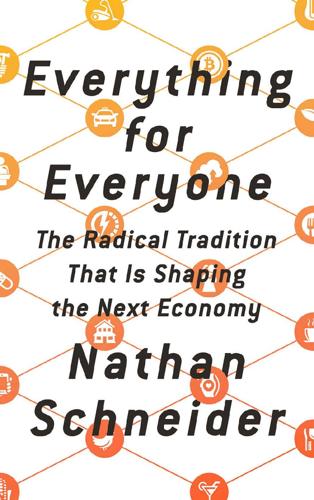
Everything for Everyone: The Radical Tradition That Is Shaping the Next Economy
by
Nathan Schneider
Published 10 Sep 2018
Several professors of management and economics I queried about cooperative business weren’t sure what I was talking about. This would come as a disappointment to Leland Stanford, the robber-baron founder of Stanford University. Accompanying his 1885 initial endowment were instructions to promote “the right and advantages of association and cooperation.” As a US senator, he championed legislation to support worker-owned cooperatives, which he saw as preferable to the investor-owned enterprise that had made him so wealthy. He told the university’s first class of students, “Cooperative societies bring forth the best capacities, the best influences of the individual for the benefit of the whole, while the good influences of the many aid the individual.”37 This was guidance that his university, including its elite business school, has almost completely ignored.
…
See platform.coop for the conferences and the consortium, and ioo.coop for the directory. For my use of “ecosystem,” apologies to Adam Curtis (dir.), All Watched Over by Machines of Loving Grace, BBC (2011). 19. E.g., selfhosted.libhunt.com and ioo.coop/clouds. 20. Anand Sriraman, Jonathan Bragg, and Anand Kulkarni, “Worker-Owned Cooperative Models for Training Artificial Intelligence,” CSCW ’17 Companion (February 25–March 1, 2017). 21. José María Arizmendiarrieta, Reflections (Otalora, 2013), sec. 486. 22. John Geraci, “Interviewed: Venture Capitalist Brad Burnham on Skinny Platforms,” Shareable (June 22, 2015). 23. On November 17, 2017, the ICA General Assembly in Malaysia unanimously passed a resolution in support of platform co-ops, sponsored by Co-operatives UK and the US National Cooperative Business Association; Brewster Kahle, “Difficult Times at Our Credit Union,” Internet Archive Blogs (November 24, 2015). 24.
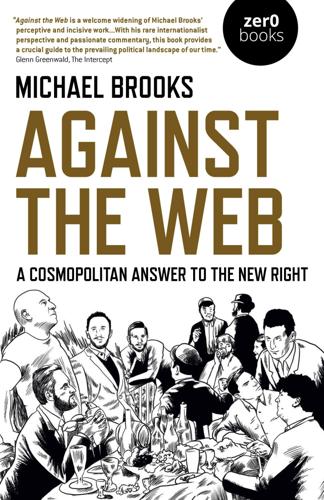
Against the Web: A Cosmopolitan Answer to the New Right
by
Michael Brooks
Published 23 Apr 2020
Putting aside Peterson’s arguments about Hierarchy in General, we should ask whether the hierarchical structure of capitalist businesses can or should be changed. To answer that question, we must move away from bizarre Aesopian fables and take a look at the real world. The Mondragon Corporation is both a worker-owned cooperative and one of the most successful businesses in Spain. The Marxist economist Richard Wolff visited Mondragon in 2012, and here’s what he reported: Given that MC has 85,000 members...its pay equity rules can and do contribute to a larger society with far greater income and wealth equality than is typical in societies that have chosen capitalist organizations of enterprises.
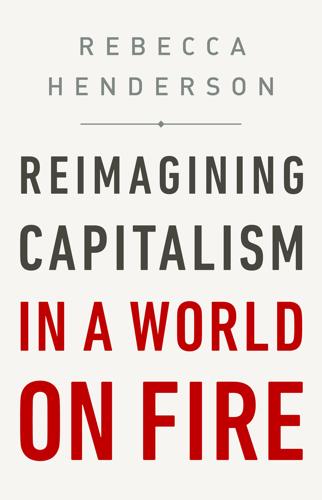
Reimagining Capitalism in a World on Fire
by
Rebecca Henderson
Published 27 Apr 2020
The organization is supporting work in ten cities across the country and has forged alliances with a wide range of organizations, including the United Steel Workers, the National Cooperative Bank, and the American Sustainable Business Council.67 In Preston, England, the local council is actively experimenting with worker-owned cooperatives as a step toward the revitalization of the city.68 In the United States the Publix supermarket chain is the largest employee-controlled firm with more than one thousand locations throughout the Southeast and two hundred thousand employees.69 The largest employee-controlled firm in the United Kingdom is the John Lewis Partnership, which operates about forty department stores and three hundred grocery stores throughout the country.
…
Ray Rothrock, an old friend who works at Venrock Ventures, helped raise hundreds of millions of dollars to fund a company called Tri Alpha Energy that is developing a fusion-based technology that could deliver commercially competitive baseload electric power.25 Work for an NGO and shame firms into changing—as Greenpeace does, or help them understand how to go about doing it—as organizations like Proforest or Leaders’ Quest do.26 Michael Peck founded 1worker1vote to support worker-owned cooperatives all over the country. Sara Horowitz founded the Freelancers Union, raising $17 million to start an insurance program for her more than four hundred thousand members, and fighting for better pay and conditions. Nigel Topping runs We Mean Business, a coalition of seven international nonprofits that are working together to catalyze business action against climate change.
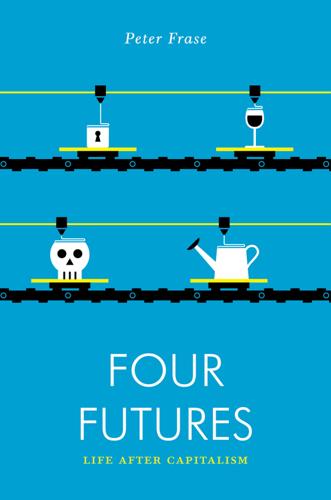
Four Futures: Life After Capitalism
by
Peter Frase
Published 10 Mar 2015
It’s important to keep the lights on, and sometimes that takes work—but keeping the lights on is not what makes us human. It is merely a necessity that we can and must transcend if we are to be truly free. Freedom begins where work ends—the realm of freedom is after hours, on the weekend, on vacation, and not at work. And that remains true whether you work for a capitalist boss or a worker-owned cooperative. The space of work is still the realm of necessity and not of freedom. Elsewhere, Marx even suggests that one day we may be able to free ourselves from the realm of necessity altogether. In Critique of the Gotha Program, he writes: In a higher phase of communist society, after the enslaving subordination of the individual to the division of labor, and therewith also the antithesis between mental and physical labor, has vanished; after labor has become not only a means of life but life’s prime want; after the productive forces have also increased with the all-around development of the individual, and all the springs of co-operative wealth flow more abundantly—only then can the narrow horizon of bourgeois right be crossed in its entirety and society inscribe on its banners: From each according to his ability, to each according to his needs!

Snowden's Box: Trust in the Age of Surveillance
by
Jessica Bruder
and
Dale Maharidge
Published 29 Mar 2020
He also realized that the same computer skills he’d been using to pay the bills could bolster his work as an activist. He began volunteering in web development for Earth First!, the radical environmental group. In 2009, Micah moved to San Francisco. After six months stringing together odd jobs from Craigslist, he got hired fulltime at Radical Designs, a worker-owned cooperative in Oakland that builds websites for social justice organizations. Roughly two years after that, Micah landed his dream job: doing web development for the Electronic Frontier Foundation, a nonprofit digital rights advocacy group. Micah’s infatuation with EFF had begun long before he landed in California.

The Coffee Book: Anatomy of an Industry From Crop to the Last Drop
by
Gregory Dicum
and
Nina Luttinger
Published 1 Jan 1999
In particular, the company has had notable success with religious groups. Source: Equal Erchange Based in Massachusetts but with distribution throughout the country, Equal Exchange remains the largest 100-percent Fair Trade coffee company in the country today (and one of the largest worker-owned cooperatives). Experiencing dramatic growth in recent years—20 to 30 percent per year, and $20 million in sales for 2005—Equal Exchange, perhaps better than any other company, is a living demonstration that a company can do well by doing good in the world. Indeed, Equal Exchange’s approach has gained so much trust among coffee growers that a pair of Latin American Fair Trade producer co-ops have actually made substantial investments in the company.
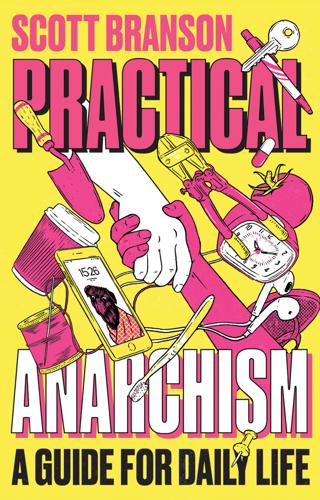
Practical Anarchism: A Guide for Daily Life
by
Scott. Branson
Published 14 Jun 2022
The Malcolm X Grassroots Movement takes the term “solidarity economics” from Latin American social movements of the 1980s and 1990s, as well as the Mondragon Corporation in Spain, to describe the vision they support: in Cooperation Jackson in Mississippi people are trying to build food autonomy, provide housing access, and engage in participatory budgets to direct state and municipal funding to their projects. One method people might engage in is turning workplaces into worker-owned cooperatives, or forming community land trusts to wrest property from state or corporate ownership. All of these ideas engage in some way with the current economy towards a transformation of it. The idea is to find the cracks of the system and try to widen them. The Meaning of Money Money might be a privileged space for us to examine the ways we invest meaning in things through the hope that their value will persist.
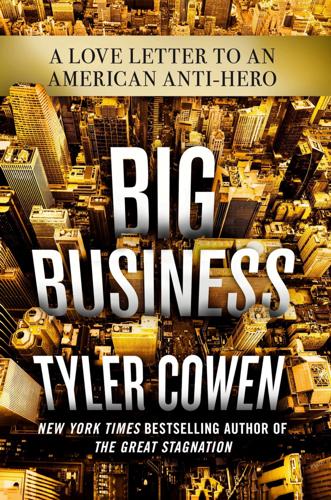
Big Business: A Love Letter to an American Anti-Hero
by
Tyler Cowen
Published 8 Apr 2019
And as the Democratic Party responds to the excesses of the Trump administration, Sanders’s progressive ideals are proving highly influential. Bernie Sanders epitomizes the anti-business left. A self-described socialist, he has called for breaking up the big banks and for the establishment of more worker-owned cooperatives. He blames the stagnation in living standards on the rapacious nature of American business. I think you can plausibly argue that an actual Sanders presidency might not be nearly as radical as some of his rhetoric; consider, for example, that he uses the word “socialist” in varying and often pretty generic ways.
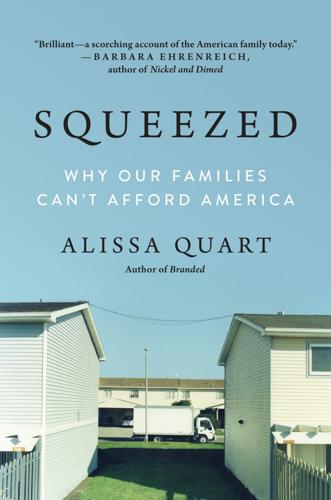
Squeezed: Why Our Families Can't Afford America
by
Alissa Quart
Published 25 Jun 2018
Take school teaching: Americans and their representatives give lip service to teaching yet continue to ruinously underpay teachers, and now they are attacking teachers’ unions. But on our own, we can begin to think about care differently. For instance, we can support care worker cooperatives and unions, both in real life and online, like the ones I write about in this book. We can hire from worker-owned cooperatives, like the New York City housecleaning service Brightly Cleaning, rather than from cleaning conglomerates like Handy. We can also reframe care out of respect for the domestic workers who keep so many of our families together, as Ai-jen Poo, who has organized domestic and care workers for years, argues.

Code Dependent: Living in the Shadow of AI
by
Madhumita Murgia
Published 20 Mar 2024
, The Diplomat, March 12, 2022, https://thediplomat.com/2022/03/will-common-prosperity-reach-chinas-takeout-drivers/. 18 Javier Madariaga et al., ‘Economía de Plataformas y Empleo ¿Cómo Es Trabajar Para Una App En Argentina?’, Centro de Implementación de Políticas Públicas para la Equidad y el Crecimiento (Buenos Aires, May 2019), https://www.cippec.org/wp-content/uploads/2019/05/Como-es-trabajar-en-una-app-en-Argentina-CIPPEC-BID-LAB-OIT.pdf. 19 Kate Conger, ‘A Worker-Owned Cooperative Tries to Compete With Uber and Lyft’, The New York Times, May 28, 2021, https://www.nytimes.com/2021/05/28/technology/nyc-uber-lyft-the-drivers-cooperative.html#:~:text=%E2%80%9CThe%20starting%20point%20for%20this,what%20works%20best%20for%20them.%E2%80%9D. 20 Megan Rose Dickey, ‘The Drivers Cooperative Thinks Ridehailing Should Be Owned by Drivers, Not Venture Capitalists’, Protocol, August 20, 2021, https://www.protocol.com/workplace/drivers-cooperative-uber-lyft. 21 Catrin Nye and Sam Bright, ‘Altab Ali: The Racist Murder That Mobilised the East End’, BBC Online, May 4, 2016, https://www.bbc.co.uk/news/uk-england-london-36191020. 22 Sarah Butler, ‘Uber Drivers Entitled to Workers’ Rights, UK Supreme Court Rules’, The Guardian, February 19, 2021, https://www.theguardian.com/technology/2021/feb/19/uber-drivers-workers-uk-supreme-court-rules-rights#:~:text=It%20ruled%20that%20Uber%20must,challenge%20unfair%20dismissal%2C%20for%20example. 23 ‘Gig Win: Canada Supreme Court Rules in Favour of UberEats Driver’, Al Jazeera, June 26, 2020, https://www.aljazeera.com/economy/2020/6/26/gig-win-canada-supreme-court-rules-in-favour-of-ubereats-driver#:~:text=Canada’s%20Supreme%20Court%20on%20Friday,in%20Canada%20as%20company%20employees.; Christoph Stutz and Andreas Becker, ‘Switzerland: Uber Drivers Qualify as Gainfully Employed from a Social Security Perspective,’ Baker McKenzie, March 29, 2023, https://insightplus.bakermckenzie.com/bm/viewContent.action?

Starbucked: A Double Tall Tale of Caffeine, Commerce, and Culture
by
Taylor Clark
Published 5 Nov 2007
The first sticking point concerns the restrictions on which farms are eligible for Fair Trade certification. In order to participate in the system, applicants must obey a set of rules that often seems more like a socialist wish list than a structure designed to help growers. All aspiring farms must be small, family-run plots that are part of demo-cratic, worker-owned cooperatives. Private ownership and capitalist practices are completely off limits — even hiring day laborers can take your farm out of the running. Many say this restriction unfairly disqualifies good private farms, and some also call it culturally insensitive. The coffee world is full of families who have cultivated the same land for generations, beholden to no one; the idea of having others make their decisions goes against years of tradition.
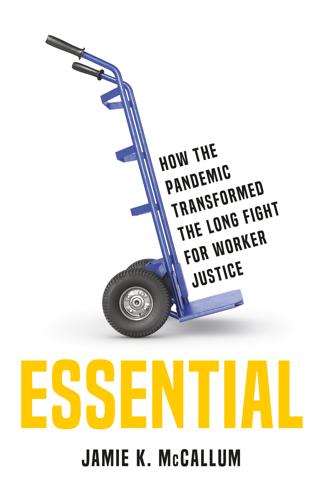
Essential: How the Pandemic Transformed the Long Fight for Worker Justice
by
Jamie K. McCallum
Published 15 Nov 2022
In the long run, which, given the urgency of climate change, has to happen in the short run, we will be far better prepared for the next pandemic if we reorganize our society to give average workers the political, economic, and cultural power to make decisions that benefit all of us. Forming a union should be easy, devoid of management interference. All private businesses should be worker-owned cooperatives. We should use our great wealth to reduce the amount of time we each need to work to generate a livable income. Healthcare and other industries that are vital to our physical and mental well-being should be free and universally accessible. Other related policies can address the racial and gender wage and wealth gaps.

Mood Machine: The Rise of Spotify and the Costs of the Perfect Playlist
by
Liz Pelly
Published 7 Jan 2025
Linares is an advocate for what’s called the solidarity economy—a deep-rooted international movement toward sustainable economic arrangements that value community ownership and democratic governance—and her ongoing work involves connecting the dots between those concepts and the arts. That could look like worker-owned cooperatives, participatory arts budgeting, or mutual aid networks, to name a few examples. “It’s not just about what we’re against,” she once told me. “We also need to consider what we want to build.”2 * * * Imagining new futures for music requires collectivity, improvisation, and deep listening.
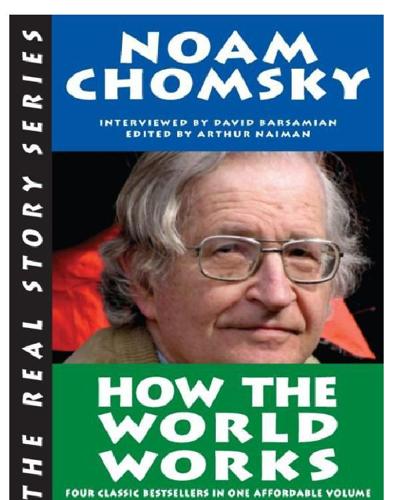
How the World Works
by
Noam Chomsky
,
Arthur Naiman
and
David Barsamian
Published 13 Sep 2011
The richer countries are the higher consumers by a large measure, and within the richer countries, the wealthy are higher consumers by a large measure. Cooperative enterprises There’s a social experiment in Mondragón in the Basque region of Spain. Can you describe it? Mondragón is basically a very large worker-owned cooperative with many different industries in it, including some fairly sophisticated manufacturing. It’s economically quite successful, but since it’s inserted into a capitalist economy, it’s no more committed to sustainable growth than any other part of the capitalist economy is. Internally, it’s not worker-controlled—it’s manager-controlled.
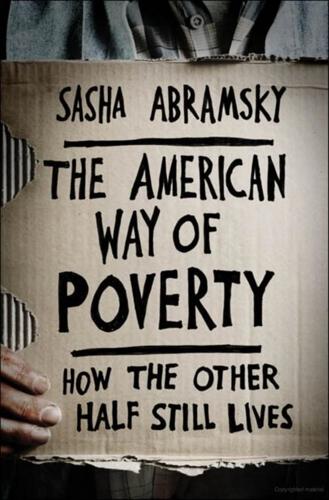
The American Way of Poverty: How the Other Half Still Lives
by
Sasha Abramsky
Published 15 Mar 2013
The Aspen Institute’s FIELD program estimated that nationwide in the years leading up to 2012 only around 117,000 such loans were disbursed annually.7 Given that there were more than 20 million micro-businesses in the country, and given the fact that small businesses in the post-2008 environment too often were denied credit by banks, that wasn’t nearly enough. Why not use some of the revenues raised from a financial transactions tax to put the federal government directly into the micro-loan business? Why not open up these loans to employees wanting to buy out retiring company owners and create worker-owned cooperatives? Why not, asked Wendy Baumann, executive director of WWBI, create a national micro-credit lending pool into which the government, as well as private banks, could contribute? In 2008 and 2009, such contributions could have been one of the conditions upon which the feds provided banks with bailout money.
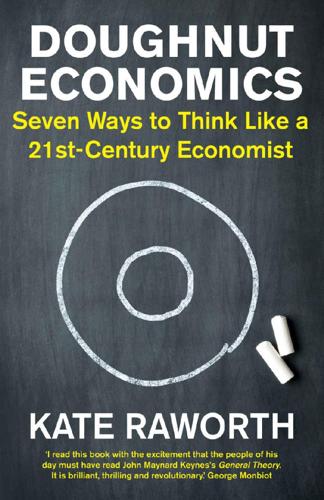
Doughnut Economics: Seven Ways to Think Like a 21st-Century Economist
by
Kate Raworth
Published 22 Mar 2017
‘We will need to get rid of perverse incentives in tax and insurance systems,’ explains Anna Coote, the social policy expert behind the proposal, ‘so that employers are encouraged rather than penalized for taking on more workers.’63 Such initiatives for a shorter working week are all the more likely to happen if the employers are the workers themselves: from the Great Depression to the 2008 financial crisis, worker-owned cooperatives have proven more adept at preventing lay-offs: they tend to share reduced working hours between all members instead – an excellent example of an adaptive employment response in the face of fluctuating demand.64 But there are ways to transform employment in traditional companies too. The widely recommended shift from taxing labour to taxing resource use would simultaneously draw human ingenuity away from making more stuff with fewer people towards repairing and remaking more things with less stuff, while employing more people too.
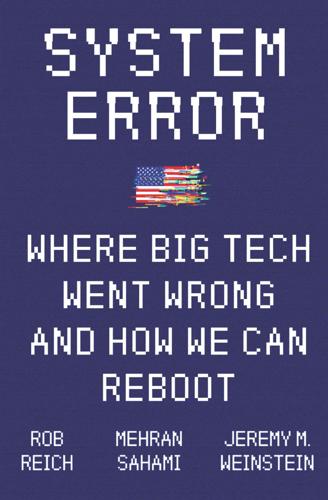
System Error: Where Big Tech Went Wrong and How We Can Reboot
by
Rob Reich
,
Mehran Sahami
and
Jeremy M. Weinstein
Published 6 Sep 2021
it was a union that secured: Adam Seth Litwin, “Technological Change at Work,” ILR Review 64, no. 5 (October 1, 2011): 863–88, https://doi.org/10.1177/001979391106400502. A movement is also afoot: Alana Semuels, “Getting Rid of Bosses,” Atlantic, July 8, 2015, https://www.theatlantic.com/business/archive/2015/07/no-bosses-worker-owned-cooperatives/397007/. what else might workers demand?: Pegah Moradi and Karen Levy, “The Future of Work in the Age of AI: Displacement or Risk-Shifting?,” in Oxford Handbook of Ethics of AI, edited by Marus D. Dubber, Frank Pasquale, and Sunit Das (Oxford: Oxford University Press, 2020), 4–5. the proper role of a corporation: “Business Roundtable Redefines the Purpose of a Corporation to Promote ‘An Economy That Serves All Americans,’” Business Roundtable, August 19, 2019, https://www.businessroundtable.org/business-roundtable-redefines-the-purpose-of-a-corporation-to-promote-an-economy-that-serves-all-americans.
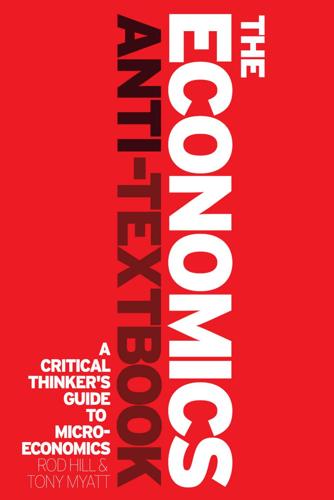
The Economics Anti-Textbook: A Critical Thinker's Guide to Microeconomics
by
Rod Hill
and
Anthony Myatt
Published 15 Mar 2010
The form of association, however, which if mankind continue to improve, must be expected in the end to predominate, is not that which can exist with capitalist as chief, and workpeople without a voice in the management, but the association of the labourers themselves on terms of equality, collectively owning the capital with which they carry on their operations, and working under managers elected and removable by themselves. (Mill 1965: 775) 18 Democratic firms are not fictional constructs, like the perfectly competitive firm. Both consumer-owned and worker-owned cooperative firms exist and are important in some sectors of the economy. Yet they have virtually vanished from the textbooks (Hill 2000; Kalmi 2007). For worker cooperatives, there is evidence that worker productivity is higher than in comparable capitalist firms (Bowles et al. 2005: 138). In the Basque region of Spain, the Mondragón Cooperative, comprising more than eighty worker cooperatives and about 30,000 worker members, is a prototype of a cooperative economy in which the primary, manufacturing, financial and service sectors form an interlinked network.
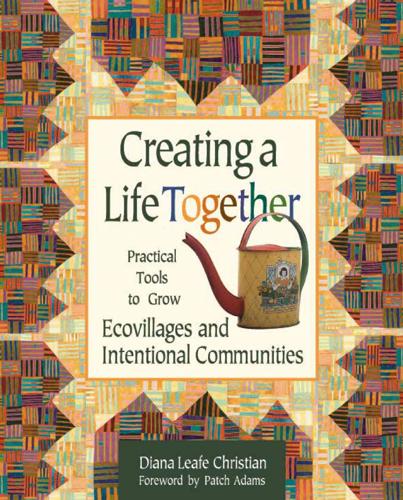
Creating a Life Together: Practical Tools to Grow Ecovillages and Intentional Communities
by
Diana Leafe Christian
Published 1 Jan 2003
Eight Earthaven members decided to make a modest living on the land by addressing two of the community’s challenges — the need to clear forest on arable bottom land so the community can grow enough food to feed itself, and the need for building materials and carpenters for community buildings and members’ homes. They formed a worker-owned co-operative, Earthaven Forestry and Building Company (as a Limited Liability Company), and taught themselves how to harvest trees sustainably, mill lumber, and build houses. It was a steep learning curve for many of them, as only two were carpenters, and they went into fairly deep debt with private loans from other members for a portable band saw, a dump truck, and other equipment.

San Francisco
by
Lonely Planet
The counter staff are designers, so if that yellow wrap cardigan doesn’t fit just so, they’ll get one made to order for you. Good Vibrations Clothing, Accessories Offline map Google map ( 415-522-5460; www.goodvibes.com; 603 Valencia St; 10am-9pm Sun-Thu, to 11pm Fri & Sat; & 16th St Mission) ‘Wait, I’m supposed to put that where?’ The understanding salespeople in this worker-owned cooperative are used to giving rather, um, explicit instructions, so don’t hesitate to ask. Margaret Cho is on the board, so you know they’re not shy here. Check out the antique vibrators in the museum display by the door, and imagine getting up close and personal with the one that looks like a floor waxer – then thank your stars for modern technology.
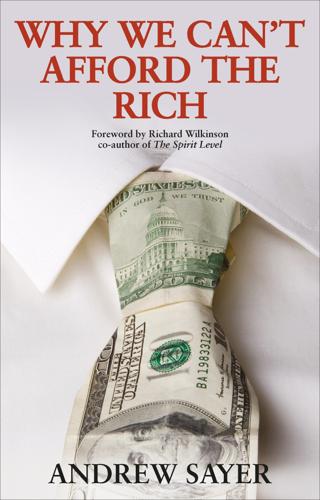
Why We Can't Afford the Rich
by
Andrew Sayer
Published 6 Nov 2014
So, while profits can appear in such exchange of goods for money, the origin of profit in a whole economy can’t be in exchange: it must be in production. For it to be possible for some to make profits systematically by buying cheap and selling dear, somewhere in the economy a surplus of goods must be being produced. Imagine an economy of small, worker-owned cooperatives producing goods and services for sale in markets. Each cooperative has to decide how much of the revenue it gets from those sales to take as their pay, and how much to invest or save. Whether they call the difference profit or something else, it’s clear that it’s the difference between the value of what they produce and all the costs – wages, buildings, materials, equipment, energy and so on – that go into producing it.

Fodor's Oregon
by
Fodor's Travel Guides
Published 13 Jun 2023
Known for: Cajun-seasoned halibut sandwiches; Caesar salads topped with battered seafood; good location en route to the beach of Lewis and Clark National Historical Park. D Average main: $19 E 92351 Lewis and Clark Rd., Astoria P 503/468–0373 w facebook.com/shipoutinc C Closed Mon. Coffee and Quick Bites Blue Scorcher Bakery Café $ | BAKERY | FAMILY | “Joyful work, delicious food, and strong community” is the rallying cry of this family-friendly, worker-owned cooperative known for everything from huevos scorcheros (poached eggs with rice, beans, cheese, and salsa) and organic, handcrafted breads to a variety of foods using local, fair trade, and organic ingredients. The offerings change with the seasons, but there are always vegan and gluten-free options, and the inviting dining room’s big windows and children’s play area overlook downtown and the Columbia River in the distance.

San Francisco
by
Lonely Planet
The counter staff are designers, so if that yellow wrap cardigan doesn’t fit just so, they’ll get one made to order for you. Good Vibrations Clothing, Accessories Offline map Google map ( 415-522-5460; www.goodvibes.com; 603 Valencia St; 10am-9pm Sun-Thu, to 11pm Fri & Sat; & 16th St Mission) ‘Wait, I’m supposed to put that where?’ The understanding salespeople in this worker-owned cooperative are used to giving rather, um, explicit instructions, so don’t hesitate to ask. Margaret Cho is on the board, so you know they’re not shy here. Check out the antique vibrators in the museum display by the door, and imagine getting up close and personal with the one that looks like a floor waxer – then thank your stars for modern technology.

Frommer's San Francisco 2012
by
Matthew Poole
,
Erika Lenkert
and
Kristin Luna
Published 4 Oct 2011
Flax has everything you can think of in art and design supplies, an amazing collection of blank bound books, children’s art supplies, frames, calendars—you name it. There’s a gift for every type of person here, especially you. 1699 Market St. (at Valencia and Gough sts.). 415/552-2355. www.flaxart.com. Good Vibrations A laypersons’ sex-toy, book, and video emporium, Good Vibrations is a women-owned, worker-owned cooperative. Unlike most sex shops, it’s not a back-alley business, but a straightforward shop with healthy, open attitudes about human sexuality. It also has a vibrator museum. 603 Valencia St. (at 17th St.). 415/522-5460 or 800/BUY-VIBE (289-8423) for mail order. A 2nd location is at 1620 Polk St., at Sacramento St. ( 415/345-0400), and a 3rd is at 2504 San Pablo Ave., Berke-ley ( 510/841-8987). www.goodvibes.com.
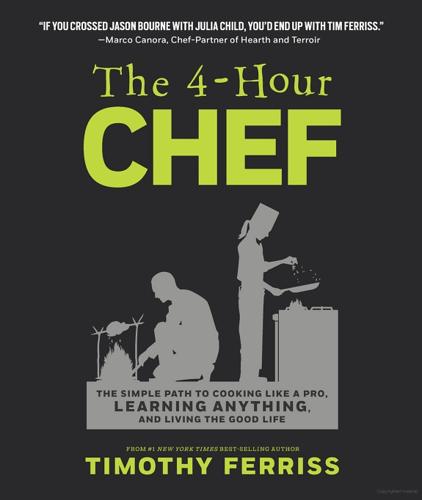
The 4-Hour Chef: The Simple Path to Cooking Like a Pro, Learning Anything, and Living the Good Life
by
Timothy Ferriss
Published 1 Jan 2012
A great bulk-foods section and lots of local and organic artisanal products (like milk from Straus Family Creamery) aimed at healthy eaters and dieters. 39.SAN FRANCISCO HERB COMPANY GOURMET MARKET 250 14th St. 415-861-7174 / sfherb.com WHAT’S UNIQUE? A huge selection of essential oils, spices, and teas. 40.RAINBOW GROCERY 1745 Folsom St. 415-863-0620 / rainbow.coop WHAT’S UNIQUE? An extensive bulk-foods section and fresh local produce, lots of it organic. It’s the largest worker-owned cooperative in the city, and it’s very popular with the hipsters in the Mission. 41.BI-RITE MARKET GOURMET MARKET 3639 18th St. 415-241-9760 / biritemarket.com WHAT’S UNIQUE? A great place for local coffee beans, chocolate, wine, and cheese (and homemade ice cream for your cheat day).

The Great Leveler: Violence and the History of Inequality From the Stone Age to the Twenty-First Century
by
Walter Scheidel
Published 17 Jan 2017
More generally, improved education would result in “up-skilling” of the workforce in a competitive global environment. On the expenditure side, public policies should provide forms of insurance that protect the value of the assets of lower-income groups against exogenous shocks, from housing values to worker-owned cooperatives to people’s health. Universal health care would buffer against such shocks. It should be easier for the less affluent to secure credit for entrepreneurial activity, and bankruptcy law should be made more forgiving to debtors. Lenders should be offered incentives or otherwise forced to restructure mortgages.
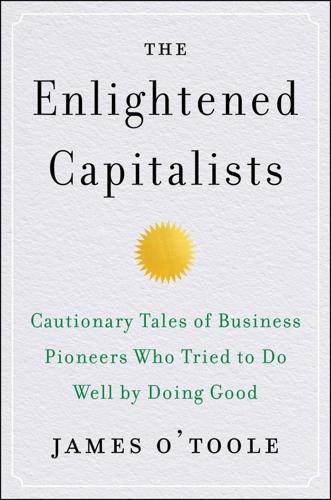
The Enlightened Capitalists
by
James O'Toole
Published 29 Dec 2018
Similarly challenging is the ongoing effort needed to reconcile the differing needs, desires, and opinions of members of organizations with deep roots in the principles of democracy, equality, and mutual support. The financing of cooperatives is a particular challenge, and not merely confined to the task of raising start-up capital. It is worth noting recent news from Mondragón, Spain, home to a group of 289 worker-owned cooperatives employing some eighty thousand employee-owners. Founded in 1941 by Basque priest José Arizmendiarrieta (hence the name of San Francisco’s Arizmendi bakery), the Mondragón co-ops are often cited as the most successful alternatives to both state ownership and shareholder capitalism. Yet in 2013, when one of the largest Mondragón companies—5,600-employee Fagor appliance manufacturer—announced that it might soon file for bankruptcy, there was widespread concern in Spain that such a filing would trigger the downfall of dozens of other companies in the financially integrated group.
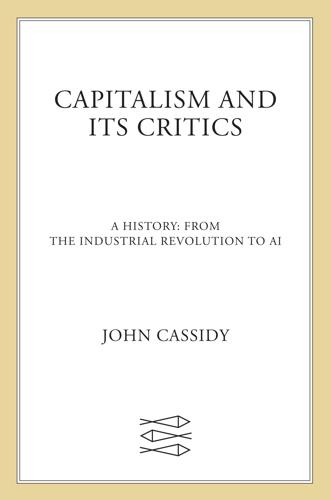
Capitalism and Its Critics: A History: From the Industrial Revolution to AI
by
John Cassidy
Published 12 May 2025
They were pointing out that doing gig work is different from being employed on a full-time basis—they compared it to the preindustrial “putting out” system—and pointing out that technology-driven capitalism was, to some extent, eating itself. They also argued that this cannibalization was creating space for new economic ideas and alternative economic forms, such as not-for-profits, worker-owned cooperatives, and community-organized public commons, which had broad appeal across the entire left and possibly beyond it. “This is a confluence that could propel a new paradigm in political economy to dominance,” the article concluded.56 The idea of shrinking capitalism seemed like one a broad range of thinkers could unite around, from Bowles and Carlin to Silvia Federici to Joseph Stiglitz.

Blue Mars
by
Kim Stanley Robinson
Published 23 Oct 2010
And they also understood that their own era could still become anything else as well— Charlotte was insistent that there was no such thing as historical determinism, but only people’s repeated efforts to enact their hopes; then the analyst’s retroactive recognition of such hopes as came true created an illusion of determinism. Anything could have happened; they could have fallen apart into general anarchy, they could have become a universal police state to “control” the crisis years; but as the great metanationals of Terra had in reality all mutated into Praxis-like worker-owned cooperatives, with people in control of their own work— democracy it was, for the moment. They had enacted that hope. And now their democratic civilization was accomplishing something that the previous system could never have accomplished, which was simply survival in the hypermalthusian period. Now they could begin to see that fundamental shift in systems, in this twenty-second century they were enacting; they had shifted the balance, in order to survive the new conditions.
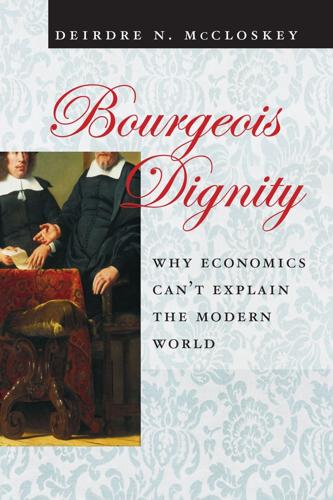
Bourgeois Dignity: Why Economics Can't Explain the Modern World
by
Deirdre N. McCloskey
Published 15 Nov 2011
Some people, to be sure, are hurt by the application of the rule of profit, in particular the restaurateur who thought it was a good idea to open the bad-food place that, unhappily, turned out to be a bad idea, socially speaking. Yet there’s justice in such a test (which is one reply to the belief that all enterprises should be worker-owned cooperatives, and none should be making profit for a single boss). She, who put her money where her mouth was, should in justice pay the price for her mistake of misallocating the society’s cooks and fish. If she does not pay, because the state keeps her in business with protection derived by taxing or regulating other people, she survives to misallocate another day.